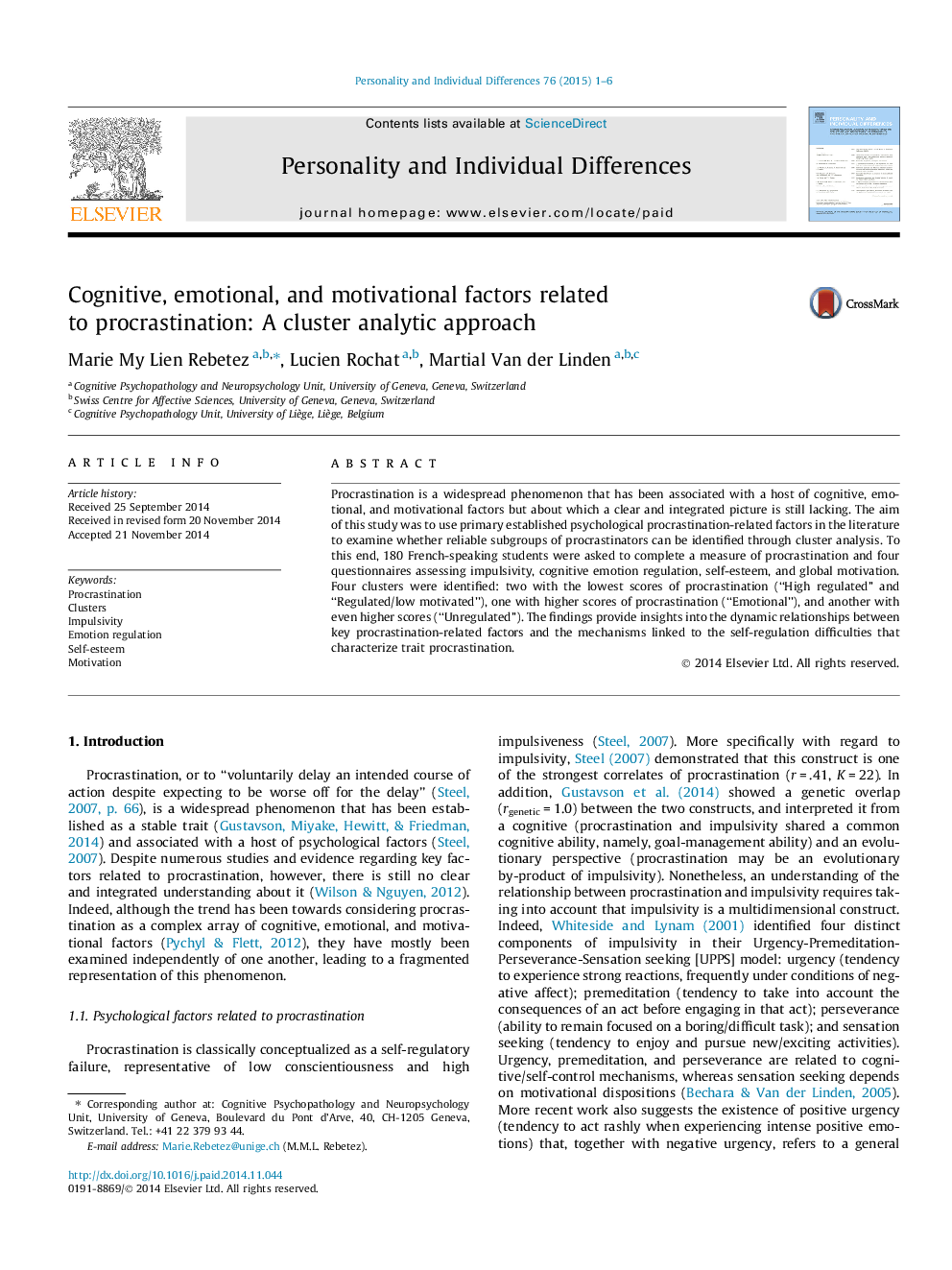| Article ID | Journal | Published Year | Pages | File Type |
|---|---|---|---|---|
| 7251603 | Personality and Individual Differences | 2015 | 6 Pages |
Abstract
Procrastination is a widespread phenomenon that has been associated with a host of cognitive, emotional, and motivational factors but about which a clear and integrated picture is still lacking. The aim of this study was to use primary established psychological procrastination-related factors in the literature to examine whether reliable subgroups of procrastinators can be identified through cluster analysis. To this end, 180 French-speaking students were asked to complete a measure of procrastination and four questionnaires assessing impulsivity, cognitive emotion regulation, self-esteem, and global motivation. Four clusters were identified: two with the lowest scores of procrastination (“High regulated” and “Regulated/low motivated”), one with higher scores of procrastination (“Emotional”), and another with even higher scores (“Unregulated”). The findings provide insights into the dynamic relationships between key procrastination-related factors and the mechanisms linked to the self-regulation difficulties that characterize trait procrastination.
Related Topics
Life Sciences
Neuroscience
Behavioral Neuroscience
Authors
Marie My Lien Rebetez, Lucien Rochat, Martial Van der Linden,
